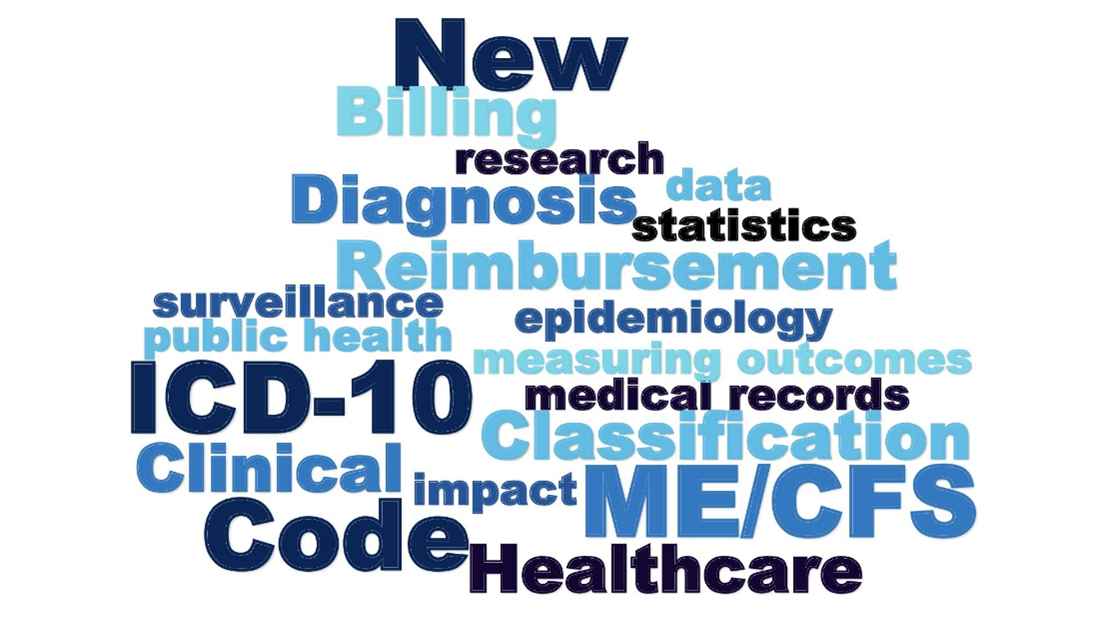Key points
There is no confirmatory test currently available to diagnose ME/CFS. However, people with ME/CFS often are found to have biological abnormalities. Yet none of these “biomarkers” have sufficient sensitivity and specificity to constitute a diagnostic test. Instead, healthcare providers need to diagnose ME/CFS based on a thorough medical history and physical exam, laboratory test results, and ruling out other fatiguing illnesses with a targeted work-up.

Proposed Approach to Diagnosis
Print Posterpdf icon[PDF - 124KB]
The proposed approach to diagnosis of ME/CFS is outlined in the figure. An assessment begins when a patient presents with
- impaired function accompanied by fatigue,
- post-exertional malaise (PEM),
- unrefreshing sleep, and
- either one or both
- cognitive impairment or
- orthostatic intolerance.
- cognitive impairment or
A thorough medical history, physical (including neurological) and mental health exam, and laboratory testing should be performed. These steps are crucial to evaluate for other conditions that may explain symptoms. During the evaluation period, healthcare providers may also begin to consider ME/CFS and schedule periodic follow-up appointments. All symptoms should be addressed and managed and any identified comorbidities treated to improve quality of life.
If symptoms persist for six months or longer, ME/CFS is diagnosed. Patients with ME/CFS should be re-evaluated periodically. Routine age-appropriate health monitoring/screening is important and should continue. In addition, healthcare providers should remain vigilant for illnesses that have symptoms similar to ME/CFS.
Getting detailed medical history and social and occupational histories is critical to assess effects of ME/CFS on a patient's daily functioning. PEM may be delayed after onset of other symptoms, and some patients may not recognize PEM at the start of illness.
Healthcare providers can use questions similar to those below to elicit an accurate description of symptoms, including PEM and fatigue:
- What are you able to do now?
- How does it compare to what you were able to do before you became sick?
- How long have you felt this way?
- How do you feel after sleeping or resting?
- What makes you feel worse? What helps you feel better?
- What happens when you try to push to do activities that are now hard for you?
- Are you able to think as clearly as you did before becoming ill?
- What symptoms keep you from doing what you need or want to do?
- What symptoms do you have when you stand or sit upright?
- How much activity, either physical or mental, does it take for you to feel ill?
- How long does it take for you to feel better after such exertion?
- What activities do you now avoid because of what happens after?
- Do you ever feel dizzy or lightheaded?
- Have you been falling more often than before?
- Do you feel worse when standing for more than 5 minutes
- Do you feel worse in warm environments?
Consider asking patients to document their activities and symptoms for a couple of weeks in a diary.
For children, the questions may need to be adapted and parents may be an important resource. Depending on the age of the child, the questions might be asked of the patient, parent/guardian, or both (together or independently).
Patients with unexplained impaired function with fatigue for 6 months or longer who do not fully meet the ME/CFS case definition can be managed like patients with ME/CFS and monitored for change.
ICD-10-CM Codes

ME/CFS has a distinct diagnosis code in the ICD-10-CM (the International Classification of Diseases modified for use in the United States). The code - G93.32 - applies to "myalgic encephalomyelitis/chronic fatigue syndrome," "chronic fatigue syndrome," and "myalgic encephalomyelitis." G93.32 is the best code for providers to select for their patients with ME/CFS. Additional codes may also be added.
ICD-10-CM also directs using the code U09.9 for post-COVID condition when appropriate, making it clearer when ME/CFS follows SARS CoV-2 infection.
Using ICD-10-CM will make it easier for healthcare providers to bill and get reimbursed for ME/CFS-related care. It enables documentation of ME/CFS in medical records. The new release also modifies the description of tabular listing code G93.3 to encompass both viral and non-viral causes.
For more information and to see a comprehensive list of the ICD-10-CM codes, please visit: Comprehensive Listing ICD-10-CM Files
- Disclaimer: The content of this ME/CFS website is for informational purposes only and does not represent a federal guideline or recommendation for the treatment of ME/CFS. The information provided on this website is not intended to be a substitute for the medical judgment of the healthcare provider and does not indicate an exclusive course of action or treatment.
